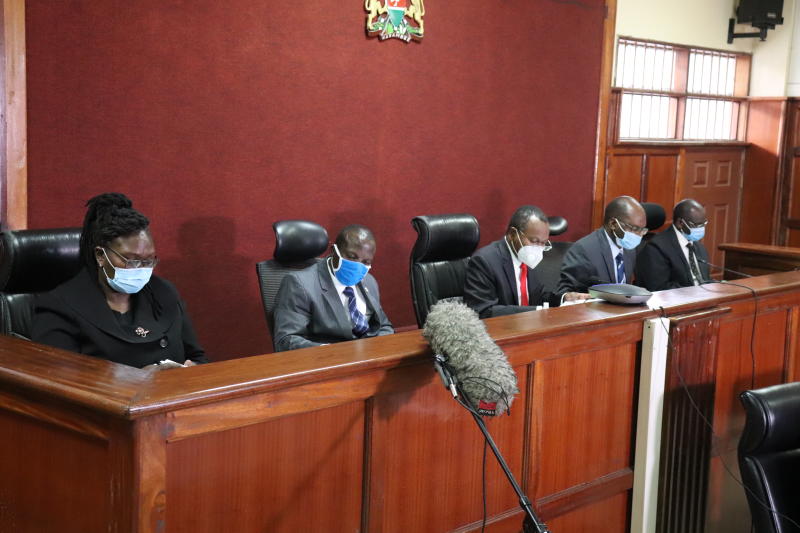×
The Standard e-Paper
Kenya’s Boldest Voice

Justices Teresia Matheka, George Odunga, Joel Ngugi, Jairus Ngaah and Chacha Mwita at a Court in Milimani on Thursday, May 13, 2021, delivering the judgement on eight consolidated petitions challenging the BBI referendum. [Collins Kweyu, Standard]
Seventeen issues were at the heart of the landmark judgment by a five-judge bench on the Building Bridges Initiative (BBI).